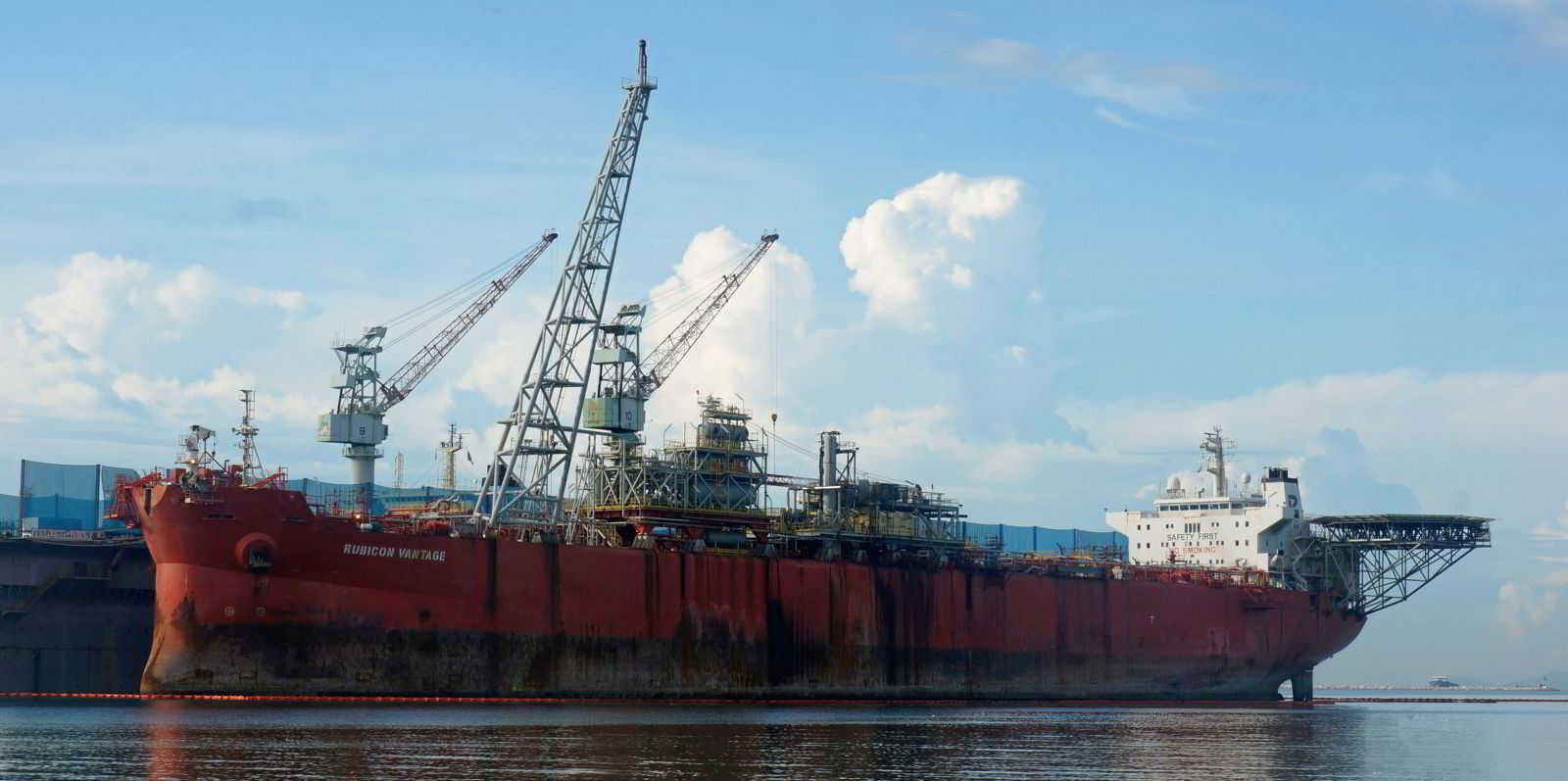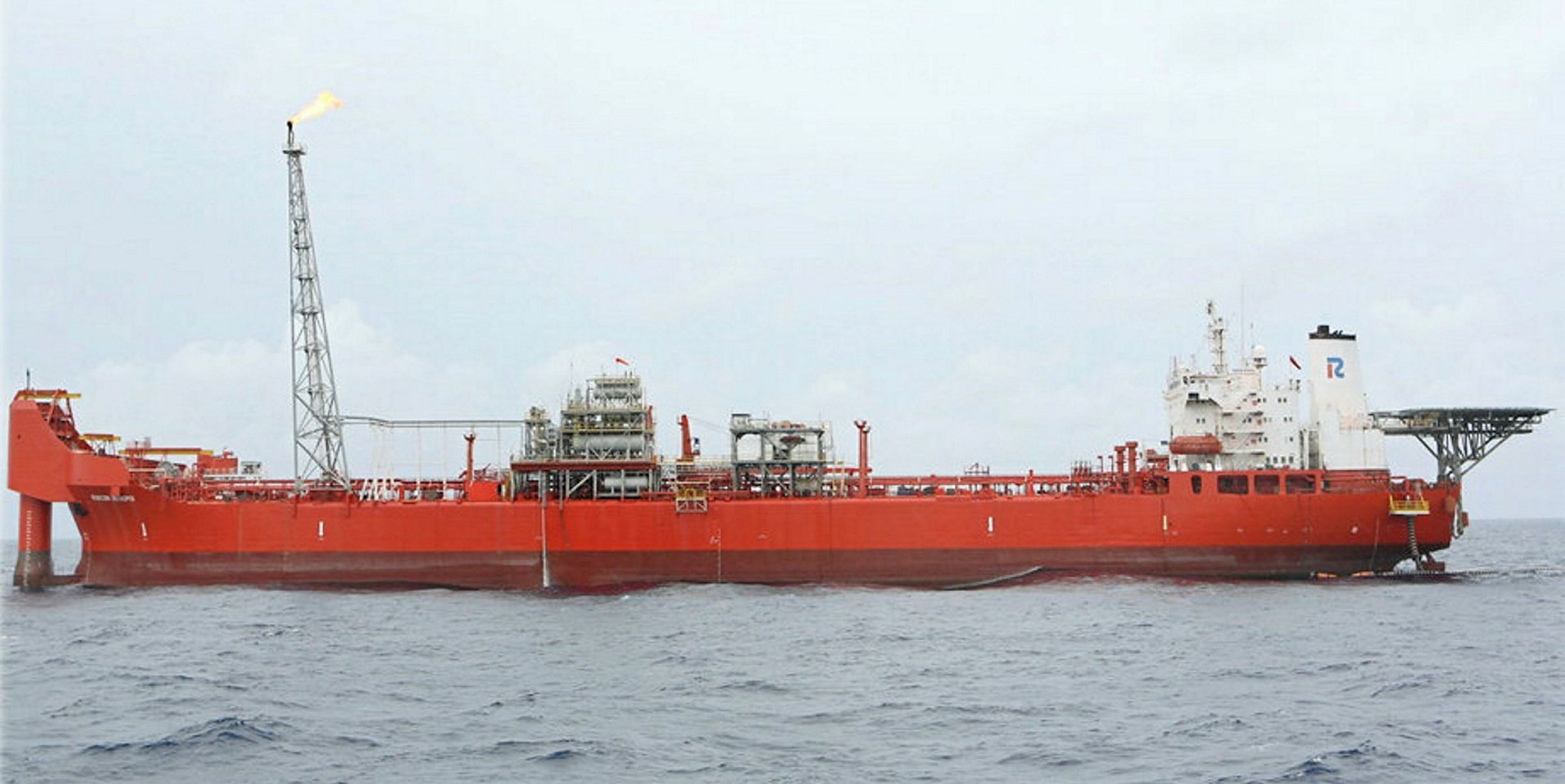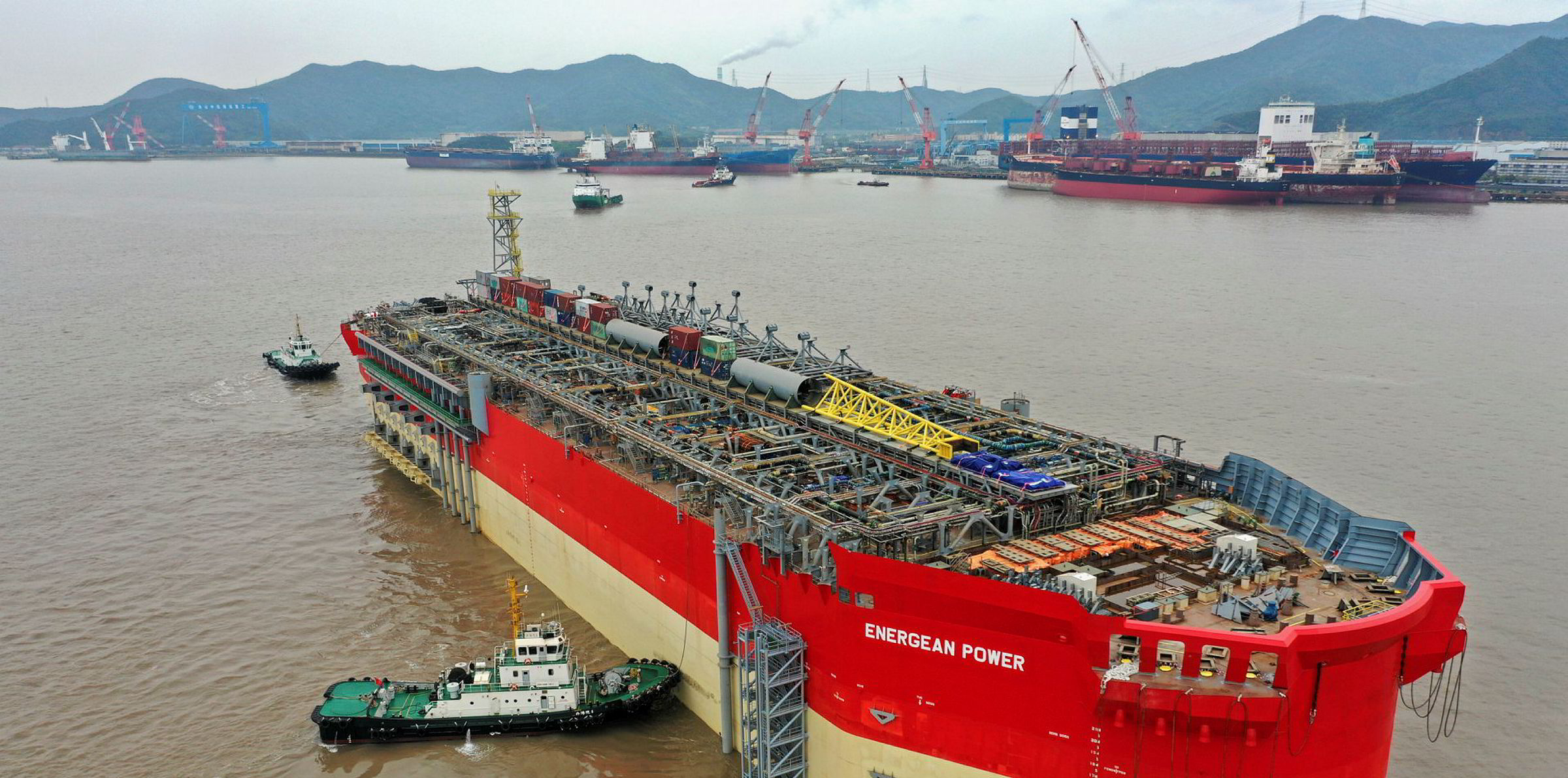KrisEnergy and Rubicon Offshore International are suing each other in multiple jurisdictions after the early end of a long-term charter of a floating production, storage and offloading vessel.
Legal action now ongoing in both the English and Cayman Islands high courts centres on alleged technical deficiencies of the Rubicon-owned FPSO.
But observers believe the basis for the dispute has more to do with the fluctuating price of oil and the way it affects the profitability of using FPSOs for pure storage.
The dispute comes while both companies face an uncertain future.
Private equity shareholders of Rubicon, a Singapore FPSO owner, are seeking to exit their engagement either by a sale of the company or of its assets.
Singapore-listed KrisEnergy, a Thai oil and gas company focused on South East Asia, has been undergoing a debt restructuring process since August 2019.
The 71,900-dwt FPSO Rubicon Vantage (built 1987) was used for storage on KrisEnergy's Wassana oilfield from July 2015 until June 2020.
The company has asserted a claim for some $6.5m is based on alleged deficiencies discovered after delivery, including a storage capacity much less than advertised.
Rubicon has brought a counterclaim of approximately $4m for allegedly unpaid shipyard work done on the vessel on the charterer's behalf.
The veteran Rubicon Vantage, built as an LR1 tanker at China's Dalian New Shipyard, was converted to a shuttle tanker in Gdansk, Poland, in 1995 and then into an FPSO at Singapore's ST Marine in 2008.
It underwent a life-extension refit at Unithai Shipyard in 2015 before going to work for KrisEnergy at the Wassana oilfield.
Like many older FPSOs being used for storage, it still had its production equipment in place.
KrisEnergy suspended production at the Wassana field in June of this year and terminated the vessel's contract after five years of service. Rubicon's website indicates that the ship was expected to serve there 2025. Some observers believe the deal include options for additional years of operation.
Documents in one legal case involving the ship indicate that the bareboat hire rate was $30,650 per day.
TradeWinds understands that KrisEnergy has claimed it used the vessel at less than its full 600,000-barrel storage capacity until December 2015, and only then learned that this was a pre-conversion figure based on tank dimensions. With idle production equipment taking up space, the ship could now load only 450,000 barrels.
KrisEnergy's claim includes the costs of lost production and also the alleged overpayment for a ship of lower than advertised capacity.
Observers believe that both the falling and rising price of oil can increase the number of FPSO disputes. Decreased demand for FPSOs, especially on marginal fields, have seen many of those repurposed for pure storage use, and such vessels give charterers chances to exploit technical breaches to escape unprofitable charter commitments.
Conversely, a rising oil price could give FPSO owners an incentive to look for breaches.
KrisEnergy investor relations vice president Tanya Pang said the company is "unable to comment on any issues regarding Rubicon Offshore International while legal proceedings continue". Officials of Rubicon did not immediately respond to a request for comment.





